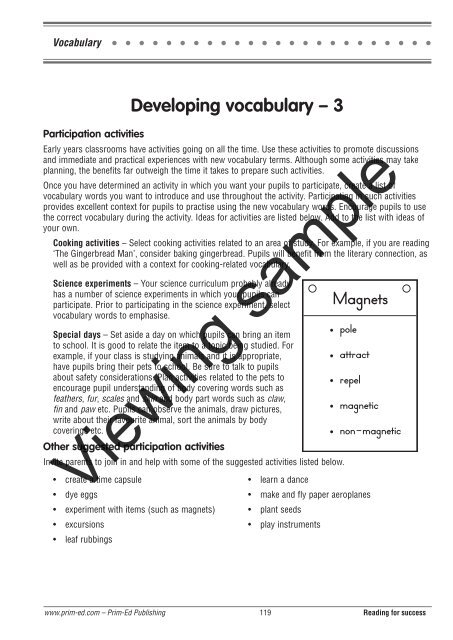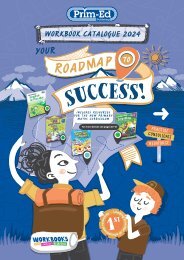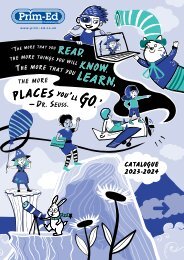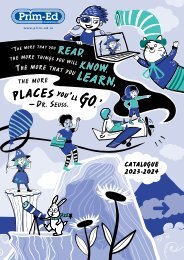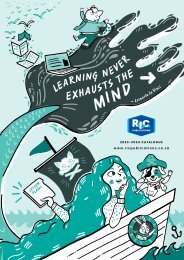PR-6216IRE Reading For Success - Book 1
Create successful ePaper yourself
Turn your PDF publications into a flip-book with our unique Google optimized e-Paper software.
Vocabulary<br />
Participation activities<br />
Developing vocabulary – 3<br />
Early years classrooms have activities going on all the time. Use these activities to promote discussions<br />
and immediate and practical experiences with new vocabulary terms. Although some activities may take<br />
planning, the benefits far outweigh the time it takes to prepare such activities.<br />
Once you have determined an activity in which you want your pupils to participate, create a list of<br />
vocabulary words you want to introduce and use throughout the activity. Participating in such activities<br />
provides excellent context for pupils to practise using the new vocabulary words. Encourage pupils to use<br />
the correct vocabulary during the activity. Ideas for activities are listed below. Add to the list with ideas of<br />
your own.<br />
Cooking activities – Select cooking activities related to an area of study. <strong>For</strong> example, if you are reading<br />
‘The Gingerbread Man’, consider baking gingerbread. Pupils will benefit from the literary connection, as<br />
well as be provided with a context for cooking-related vocabulary.<br />
Science experiments – Your science curriculum probably already<br />
has a number of science experiments in which your pupils can<br />
participate. Prior to participating in the science experiment, select<br />
vocabulary words to emphasise.<br />
Special days – Set aside a day on which pupils can bring an item<br />
to school. It is good to relate the item to a topic being studied. <strong>For</strong><br />
example, if your class is studying animals and it is appropriate,<br />
have pupils bring their pets to school. Be sure to talk to pupils<br />
about safety considerations. Plan activities related to the pets to<br />
encourage pupil understanding of body covering words such as<br />
feathers, fur, scales and skin and body part words such as claw,<br />
fin and paw etc. Pupils can observe the animals, draw pictures,<br />
write about their favourite animal, sort the animals by body<br />
coverings etc.<br />
Other suggested participation activities<br />
Invite parents to join in and help with some of the suggested activities listed below.<br />
• create a time capsule<br />
• dye eggs<br />
• experiment with items (such as magnets)<br />
• excursions<br />
• leaf rubbings<br />
Viewing sample<br />
• learn a dance<br />
• make and fly paper aeroplanes<br />
• plant seeds<br />
• play instruments<br />
www.prim-ed.com – Prim-Ed Publishing 119 <strong>Reading</strong> for success


